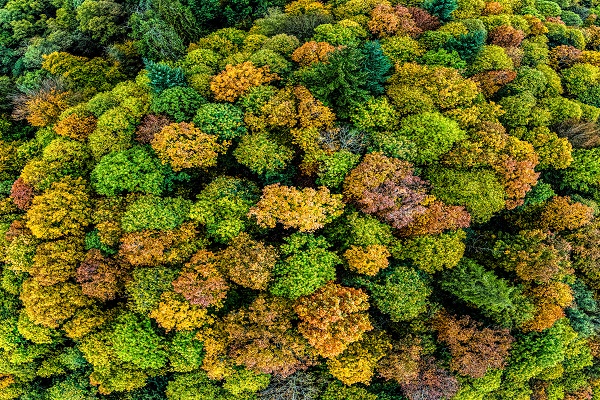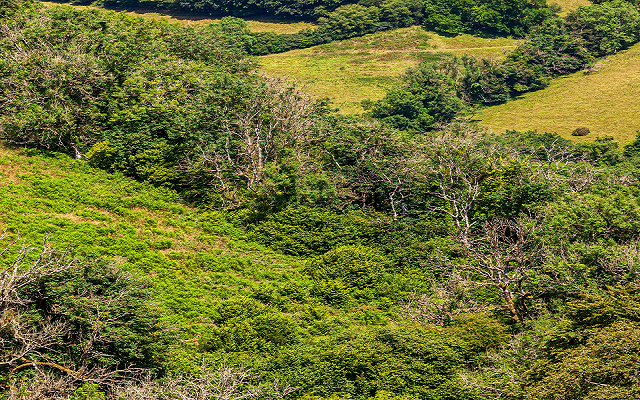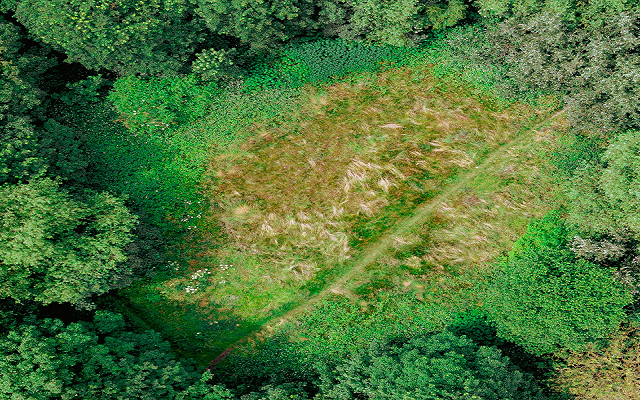Woodland creation has a role to play in nature recovery
Nature is currently under an enormous amount of pressure due the impact of climate change and the cumulative effects of human activity. A State of Nature report published in 2019 concluded that over 40% of UK species had declined since the 1970s.
This is clearly worrying for all of us, and something needs to be done. However, increasing our wooded landscape can play a significant part in helping to address the biodiversity crisis.
The Forestry Commission has recently circulated a new Woods for Nature video demonstrating the benefits of woodland creation.
It highlights that all types of tree planting – from native broad-leaved woodlands through to commercial large-scale woodlands – has the potential to help nature recovery if appropriately managed.
Woodland creation has the ability to improve the natural world as it provides a rich and diverse habitat for thousands of species that rely on woodland to live, feed and procreate. Without woodland, these species would decline further and would not be able to populate declining areas.
It is estimated that oak trees – one of the most iconic species in the UK – can support over 2.300 species. While mixed native woodlands support a wide range of flora and fauna, they are particular havens for species such as the hazel dormouse, barbastelle bats and nightingales. Non-native woodlands consisting mainly of conifer species tend to support a less diverse range of species but can still enhance biodiversity if appropriately managed. For example, dormice, bullfinch, bats and pearl-bordered fritillaries can all be found in non-native woods, especially where there are clearings, rides and glades within them.
Steps which can be taken to ensure a nature-friendly woodland include:
- Selectively thinning trees and allowing natural regeneration of seedlings in the gaps to help create a multigenerational forest with a diverse forest structure
- Maintaining open spaces, rides and glades to allow light to reach the forest floor
- Leaving some standing deadwood to provide habitat for bird and bat species
- Leaving fallen deadwood to support invertebrates, fungi and act as a refuge for reptiles
- Encouraging scrub around woodland to support invertebrates, dormice and butterflies
- Allowing initial regeneration after felling to attract scrub-nesting birds.
SOURCE: Forestry Commission
Woodland also sustains healthy ecosystems and has the ability to regulate our climate and provide clean air for us all to breath. Pollinators benefit from the woodland ecosystem, which in turn, has a positive impact on food production and farming processes.
Woodland can also play an important part in protecting soils, mitigating flooding within river catchments by slowing down the movement of water and reducing sediment and chemical runoff.
So, it’s clear that our wooded landscape can provide so many benefits, and given our existing woodland is under pressure from development, climate influences, pest and diseases, it has never been more important to increase woodland creation. By planting trees we can also turn smaller fragmented woodlands into much bigger, more robust habitats that can connect the landscape together.
Of course, it’s about planting the right tree in the right place. But if there is a willingness from landowners to play their part and consider offering up marginal land for woodland creation, we can make a difference that will last for generations to come.
If you are considering taking the next steps into diversifying land for woodland creation, Strutt & Parker is able to assist through our Woodland Consultancy team. We can provide tailored advice on how to start the journey and guidance on the generous grant aid available through the English Woodland Creation Offer, which supports landowners wanting to plant new woodland.






